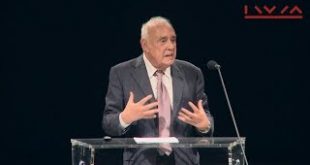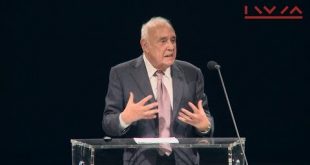LONDON – Bad economics breeds bad politics. The global financial crisis, and the botched recovery thereafter, put wind in the sails of political extremism. Between 2007 and 2016, support for extremist parties in Europe doubled. France’s National Rally (formerly the National Front), Germany’s Alternative für Deutschland (AfD), Italy’s League party, the Freedom Party of Austria (FPÖ), and the Sweden Democrats have all made electoral gains in the past two years. And I haven’t even...
Read More »Lessons for the Left, 1997 – 2018
A lecture given at King’s College London, under the auspices of the Political Economy Forum i. Labour’s Relationship with Keynes Labour has always been set a higher standard on the economy than the Conservatives: they’ve had to be more orthodox, more competent, more successful to win equal praise or escape equal blame. The reason is not hard to find: created and financed by the trade unions, and committed to the abolition of capitalism, the Labour Party faced obvious difficulties in...
Read More »In conversation with Robert Skidelsky
The Institute for Government was delighted to welcome Robert Skidelsky, author of Money and Government: A Challenge to Mainstream Economics, for an in conversation event with Gemma Tetlow, Chief Economist, Institute for Government. They discussed key themes from the book, including the damage that bad economics can do to politics and how good economics can strengthen the democratic centre. This was followed by an audience Q&A. Robert Skidelsky is Emeritus Professor of Political Economy...
Read More »In conversation with Robert Skidelsky
The Institute for Government was delighted to welcome Robert Skidelsky, author of Money and Government: A Challenge to Mainstream Economics, for an in conversation event with Gemma Tetlow, Chief Economist, Institute for Government. They discussed key themes from the book, including the damage that bad economics can do to politics and how good economics can strengthen the democratic centre. This was followed by an audience Q&A. Robert Skidelsky is Emeritus Professor of Political Economy at...
Read More »Money and Government: a lecture at the LSE, 17 September 2018
i. Over the weekend, just ten years ago, the investment firm Lehman Bros collapsed, and the world economy collapsed after it. I feel a little reluctant to add to the torrent of words trying to read the runes of this catastrophe for the better management of affairs in the future. But, by chance or cunning, a book of mine, called Money and Government: A challenge to mainstream economics, has just been published. This tries to set the collapse of 2008 in a historical context. It has been...
Read More »Money and Government: A challenge to mainstream economics
The dominant view in economics is that money and government should play only a minor role in economic life. Money, it is claimed, is nothing more than a medium of exchange; and economic outcomes are best left to the ‘invisible hand’ of the market. The view taken in this important new book is that the omnipresence of uncertainty make money and government essential features of any market economy. One reason we need money is because we don’t know what the future will bring. Government –...
Read More »Lord Robert Skidelsky. Russia and the West. Reflections on recent events
Lord Robert Skidelsky (UK), Member of the House of Lords, UK Parliament, Author
Read More »Lord Robert Skidelsky. Russia and the West. Reflections on recent events
Lord Robert Skidelsky (UK), Member of the House of Lords, UK Parliament, Author
Read More »Lord Robert Skidelsky: Will the Human Race Become Redundant?
Patočka Memorial Lecture, April 25, 2018 by Lord Robert Skidelsky Großer Sendesaal "Will the Human Race Become Redundant? What History and Economics can Tell us About the Impact of Automation on Work" Ever since the advent of machinery, work has been associated with wage labour. Machinery brought promise of both higher wages and redundancy. What do economics and history tell us about the fate of these promises? With the spread of automation the dialectic between work and...
Read More »Lord Robert Skidelsky: Will the Human Race Become Redundant?
Patočka Memorial Lecture, April 25, 2018 by Lord Robert Skidelsky Großer Sendesaal "Will the Human Race Become Redundant? What History and Economics can Tell us About the Impact of Automation on Work" Ever since the advent of machinery, work has been associated with wage labour. Machinery brought promise of both higher wages and redundancy. What do economics and history tell us about the fate of these promises? With the spread of automation the dialectic between work and redundancy may...
Read More » Robert Skidelsky
Robert Skidelsky







